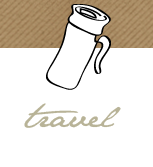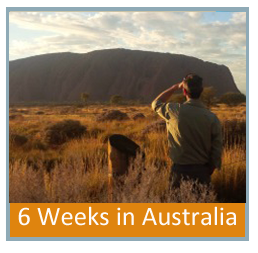Did you catch this CBC documentary yesterday?
I got a heads-up from Ann Douglas’ blog at parentcentral.ca that it was coming and I was intrigued. In her review, Douglas concludes that this “hyper-parenting” phenomenon is largely a thing of the past:
The documentary is worth watching, if only as a reminder of where we’ve been and how far we’ve come in rejecting the consumerist parenting style that views parents as manufacturers and kids as products to be paraded before the neighbors and the relatives.
I’m not so sure, though. I think hyper-parenting is still highly pervasive in one form or another.
As example, I know a college professor who refuses to take calls from the parents of students — he finds it utterly ludicrous that he would need to speak to the parent of an adult. But apparently a lot of the parents don’t think so, because it keeps happening year after year.
I also know a senior high-school teacher who, although he loves his job, does admit to the frustration of dealing with “enabled” students and their parents. If a student, as example, does not hand-in their assignment and as a result is not allowed to progress to the next task, he can expect a parent call. And when the parent doesn’t get what they want from speaking to the teacher, they’ll move on up to the vice-principal. In a school system that barely allows students to be held accountable for their actions, parents like this only seem to compound the issue.
How these same young people will ever live as independent adults is anyone’s guess. Which is why the documentary was particularly fascinating when it focused on young adults that were not long out of the nest. Some were university students hobbled by anxiety. And then there was one young woman who seemed to epitomize the issue perfectly. She was bright, but seemingly clueless when it came to “real life” smarts. She cited being let go from a number of jobs due to attitude, lateness and disrespect for senior colleagues.
At the point when the documentary catches her, she’d chosen to leave a job that paid 90,000/year to start her own business. The business never took off and we see her prancing into an office to discuss bankruptcy with a designer bag, takeaway coffee and iPhone phone in hand. And what will happen to this helpless creature? Oh, mommy and daddy will surely take her back in. They’ve already been subsidizing her rent, after all.
Perhaps when Douglas suggests that hyper-parenting is no longer a common practice, she’s referring more to the over-indulgence of consumer goods upon children — the latest toys, video games and designer clothes — as grossly demonstrated in the documentary’s coverage of a $4,000 birthday party for a one-year-old. But even in this regard, I’m not so sure it’s a done deal either.
The documentary notes that hyper-parenting is found in the middle- to upper-classes. I live in a middle- to upper-class neighbourhood and I can attest that consumerism is still rampant in this neck of the woods! Kids wearing Lululemon, toting Nintendo DS players, heading out to multiple extra-curricular activities a week and returning home to their McMansions. Sure, it’s not everyone, but there’s enough to safely say that it exists.
So, if this hyper-parenting does in fact exist in strong numbers, am I one of them? I don’t think so. But sometimes I actually have this irrational urge to be one.
What do I mean by that? Well, the documentary points to two driving factors behind hyper-parenting: fear (as suggested by the author Carl Honore) and peer pressure (as suggested by one of the parents).
Like all parents, I’m vulnerable to any suggestions of harm to my children. This innate desire to protect our children is used to sell newspapers, magazines, products and services everyday.
How? Okay, here’s one example: headlines shouting out that a child has been abducted by a stranger. It’s not that the media shouldn’t report on this — it is news, after all. It’s just that my intense desire to protect my child can overshadow the hard facts that stranger abductions are exceedingly rare. This parental fear is why few children ever walk to school or their bus stop unsupervised.
And despite my best efforts to shed this fear, I am one of those parents whose children are rarely unsupervised. So what’s the harm in this? The documentary draws a few interesting connections. The first is that when one isn’t allowed unsupervised play, then one ends up with structured play — like a team sport. Honore points out that team sports take all the control away from the child because the rules are made for them, the referree decides who is playing by the rules, etc. The documentary also points out that once you’ve been hovering around your child long enough, it starts to seem natural. Both parents and child get used to always having each other around and a co-dependence develops which makes eventual independence less likely.
The other driving factor that I mentioned above was peer pressure. As much as I hate to admit it, I feel the weight of peer pressure … that so-and-so is taking this class, perhaps my child should too? I actually feel embarrassed to admit that my children are enrolled in exactly zero extra-curricular activities at the moment. Rationally, I know that my children are getting exercise and stimulation through the more unstructured things we do as a family. But I still have this irrational response to the peer pressure to conform to what others are doing. I guess when it comes right down to it, this peer pressure brings me back in a circular swing to fear. The fear that maybe so-and-so is doing the best thing for their child and that I am depriving my child of something very important.
So what have I got to conclude from all of this? I guess:
1. That hyper-parenting is harmful to children
2. That hyper-parenting is a form of parental instinct, but magnified to excess
3. That I am vulnerable to fear and peer pressure
Nothing too ground-breaking in that list, is there? But still, the issue is deeply fascinating to me.
It really got me thinking about a lot of things — especially how much I dislike the use of fear-mongering to sell products and services to parents. It’s used to sell everything from books, to “green” products, to electronics and technology. (It also got Andrea Tomkins thinking about a lot of things too, which you can read here.)
And it really got me wondering if I have the potential to be a hyper-parent. I’ve concluded that I probably have the potential, but I’m just too darn tired to bother!
If you missed this documentary, you can read about it and view video clips here.
















Speak Your Mind